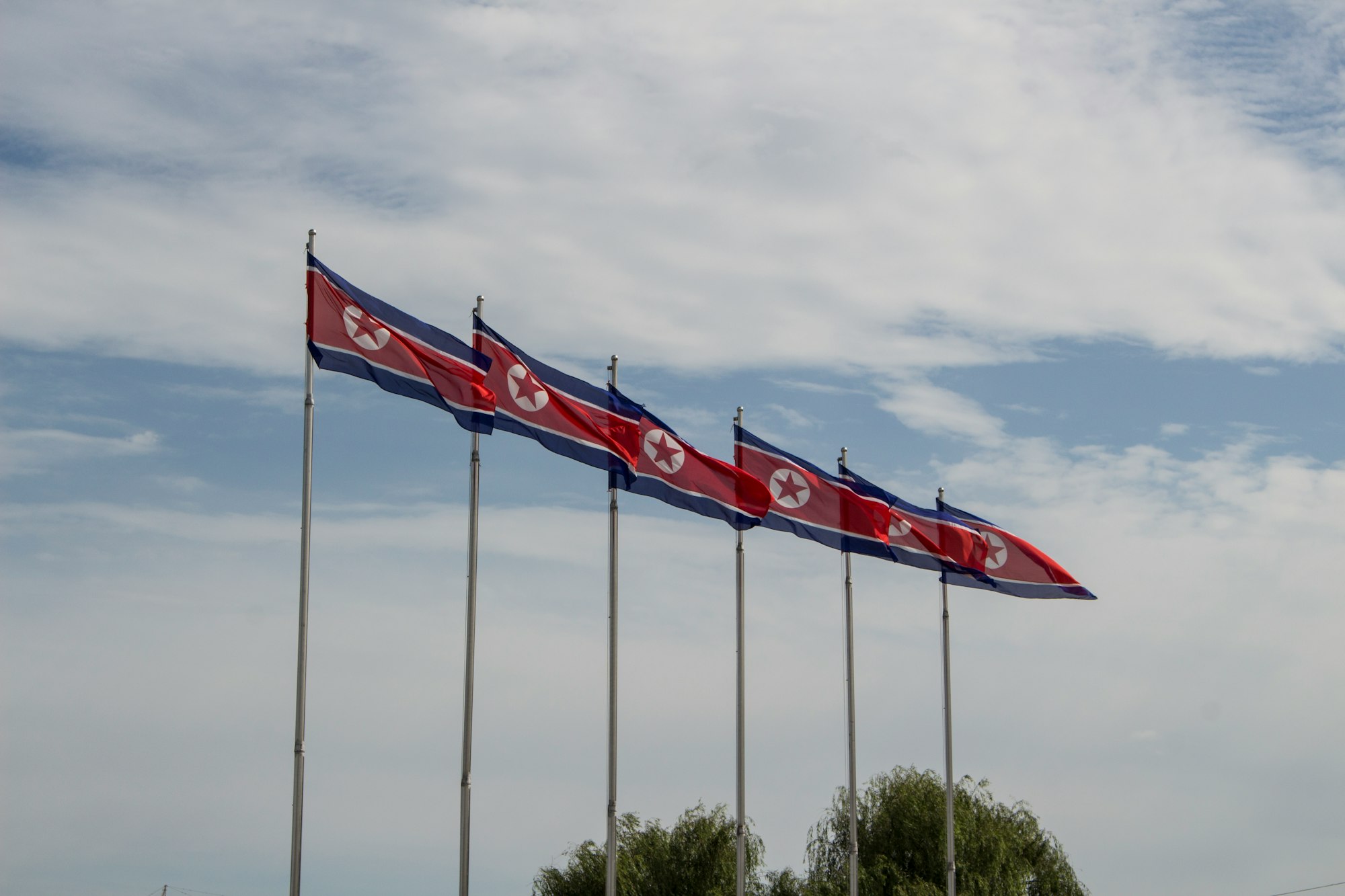Justice Department Launches Major Crackdown on North Korean IT Worker Infiltration Scheme

Bottom Line Up Front: The U.S. Department of Justice has announced its most comprehensive action to date against North Korean remote IT workers, including arrests, indictments of 14 individuals, and seizures across 16 states. The operation disrupted schemes that generated hundreds of millions in illicit revenue for Pyongyang's weapons programs while compromising national security data at over 100 American companies.
Key highlights from the research:
- The Justice Department announced coordinated actions against North Korean schemes that include two indictments, an arrest, searches of 29 known or suspected "laptop farms" across 16 states, and the seizure of 29 financial accounts used to launder illicit funds and 21 fraudulent websites Justice Department Announces Coordinated, Nationwide Actions to Combat North Korean Remote Information Technology Workers’ Illicit Revenue Generation Schemes
- According to UN estimates, the IT workers reliably generate $250 million to $600 million per year Thousands of North Korean IT workers have infiltrated the Fortune 500—and they keep getting hired for more jobs | Fortune for the North Korean regime
- Between 2020 and 2022, the US government found that over 300 US companies in multiple industries, including several Fortune 500 companies, had unknowingly employed these workers Jasper Sleet: North Korean remote IT workers’ evolving tactics to infiltrate organizations | Microsoft Security Blog
- North Korean IT workers used false or fraudulently obtained identities to gain employment with an Atlanta, Georgia-based blockchain research and development company and stole virtual currency worth approximately over $900,000

Coordinated Federal Enforcement Action
The Justice Department announced Monday a sweeping crackdown on sophisticated fraud schemes orchestrated by North Korean operatives posing as American IT workers. The coordinated actions include two indictments, an arrest, searches of 29 known or suspected "laptop farms" across 16 states, and the seizure of 29 financial accounts used to launder illicit funds and 21 fraudulent websites.
The enforcement operation represents the largest coordinated response to date under the Department's DPRK RevGen: Domestic Enabler Initiative, which specifically targets North Korea's illicit revenue generation schemes and their U.S.-based facilitators.

How the Scheme Worked
North Korean operatives employed sophisticated tactics to infiltrate American companies:
False Identities and Documentation The schemes involve North Korean individuals fraudulently obtaining employment with U.S. companies as remote IT workers, using stolen and fake identities. The North Korean actors were assisted by individuals in the United States, China, United Arab Emirates, and Taiwan, and successfully obtained employment with more than 100 U.S. companies.
Laptop Farms as Digital Proxies Central to the deception were U.S.-based "laptop farms" - facilities where accomplices hosted company-issued laptops and enabled remote access for overseas workers. Certain U.S.-based individuals enabled one of the schemes by creating front companies and fraudulent websites to promote the bona fides of the remote IT workers, and hosted laptop farms where the remote North Korean IT workers could remote access into U.S. victim company-provided laptop computers.
The schemes used sophisticated technical infrastructure including KVM (keyboard-video-mouse) switches, which allow one person to control multiple computers remotely, making it appear as if workers were physically located in the United States.
Major Financial and Security Impact
Revenue Generation
According to UN estimates, the IT workers reliably generate $250 million to $600 million per year for the North Korean regime. Individual cases from the latest indictments reveal the scope:
- One scheme generated more than $5 million in revenue through a network facilitated by U.S. nationals
- North Korean IT workers stole virtual currency worth approximately over $900,000 from blockchain companies
- Overall, the scams compromised the identities of more than 80 Americans, generated over $5 million for Pyongyang and left companies facing millions in damages and security costs

National Security Breaches
Beyond financial theft, the workers gained access to sensitive military technology. IT workers employed under this scheme also gained access to sensitive employer data and source code, including International Traffic in Arms Regulations (ITAR) data from a California-based defense contractor that develops artificial intelligence-powered equipment and technologies.
Key Arrests and Indictments
Massachusetts Case: The Facilitator Network
The Justice Department arrested Zhenxing "Danny" Wang of New Jersey, who allegedly orchestrated a multi-year fraud scheme. The indictment describes a multi-year fraud scheme by Wang and his co-conspirators to obtain remote IT work with U.S. companies that generated more than $5 million in revenue.
Wang and his accomplices created shell companies including Hopana Tech LLC, Tony WKJ LLC, and Independent Lab LLC to provide fake legitimacy to North Korean workers. They received at least $696,000 in compensation for their services.
Georgia Case: Cryptocurrency Theft
The Northern District of Georgia unsealed a five-count wire fraud and money laundering indictment charging four North Korean nationals, Kim Kwang Jin, Kang Tae Bok, Jong Pong Ju and Chang Nam Il, with a scheme to steal virtual currency from two companies, valued at over $900,000 at the time of the thefts.
The defendants used fraudulent identities to gain employment at blockchain companies, then modified smart contract source code to steal cryptocurrency, later laundering the funds through Tornado Cash and fraudulent Malaysian identification documents.

Scale of Corporate Infiltration
The infiltration reached Fortune 500 companies across multiple sectors:
Widespread Corporate Impact North Korean nationals have successfully landed remote employment across Fortune 500 companies, including a high-end retail chain, a major American car manufacturer, a top Silicon Valley technology company, a top-five national media company and an aerospace and defense manufacturer
Between 2020 and 2022, the US government found that over 300 US companies in multiple industries, including several Fortune 500 companies, had unknowingly employed these workers
Not Just Large Companies Greg Schloemer, senior threat intelligence analyst at Microsoft, said he has seen organizations with just five employees unwittingly onboard remote North Korean IT workers. "There may be some misconception that larger organizations are particularly vulnerable, but any organization is a target," he explained.
Evolving Tactics and AI Integration
North Korean IT workers are rapidly adapting their methods:
AI-Enhanced Deception Among the changes noted in the North Korean remote IT worker tactics, techniques, and procedures (TTPs) include the use of AI tools to replace images in stolen employment and identity documents and enhance North Korean IT worker photos to make them appear more professional. We've also observed that they've been utilizing voice-changing software.
Increased Sophistication AI has emboldened the North Korean scheme, allowing the IT workers to develop scripts so they can hold down as many as six or seven jobs at a time, disguise their appearance, and even alter their voices so they don't have an accent—or so they sound like a woman instead of a man.

Chinese Infrastructure Support
Recent intelligence reveals the critical role of Chinese companies in enabling these operations:
Front Company Network Strider Technologies, a cyber intelligence platform that works with eight of the Fortune 10 companies, released a report saying it's identified 35 China-based companies linked to North Korean IT worker operations. Those 35 companies are strongly believed to be affiliated with Liaoning China Trade Industry Co., a U.S.-sanctioned company
The Strider report underscores that Chinese companies serve as essential intermediaries in the North Korean IT worker conspiracy. They provide technical infrastructure, cover for the scheme, and serve as financial conduits for money laundering.
Detection Challenges and Red Flags
Cybersecurity experts have developed various methods to identify potential North Korean operatives:
Unconventional Interview Questions "My favorite question is something to the effect of, 'How fat is Kim Jong Un?'" said Adam Meyers, senior vice president of counter adversary operations at CrowdStrike, during a panel discussion at RSAC Conference 2025. He added that he's seen this question cause "quite a few" candidates to hang up on their interviewers.
Technical Detection Methods Meyers said the counter-adversary team at CrowdStrike initially discovered DPRK activity in customers' environments in 2024, when they noticed clusters of KVMs appearing on CrowdStrike's Falcon XDR platform
Escalating Threat: From Employment to Extortion
The threat has evolved beyond simple salary generation:
Data Extortion Operations When the North Korean IT workers are initially fired, they demand access back before escalating to threatening the sale of sensitive data to competitors. If that does not secure a ransom, the person claims to still have access to some systems that will be handed off to North Korean APT groups.
Given these developments, companies may be caught between two potentially competing areas of legal risk. The indictment also revealed that the DPRK's workers have recently become more aggressive and, in some cases, extorted their employers by accessing company information and threatening to post – or have actually posted – it to the dark web unless they receive payment.

Law Enforcement Response and Future Outlook
Seizures and Disruptions
Between June 10 and June 17, 2025, the FBI executed searches of 21 premises across 14 states hosting known and suspected laptop farms. These actions, coordinated by the FBI Denver Field Office, related to investigations of North Korean remote IT worker schemes being conducted by the U.S. Attorneys' Offices of the District of Colorado, Eastern District of Missouri, and Northern District of Texas. In total, the FBI seized approximately 137 laptops.
Ongoing Investigation
The Department's actions to combat these schemes are the latest in a series of law enforcement actions under a joint National Security Division and FBI Cyber and Counterintelligence Divisions effort, the DPRK RevGen: Domestic Enabler Initiative.
The government has also filed civil forfeiture complaints, including a civil forfeiture complaint in early June 2025 for over $7.74 million tied to an illegal employment scheme.
Recommendations for Organizations
Enhanced Hiring Practices
- Implement rigorous identity verification processes for remote workers
- Conduct video interviews requiring camera use and personal engagement
- Verify social media presence and professional history consistency
- Use multiple interview rounds with different technical teams
Technical Safeguards
- Monitor for unauthorized remote access tools and KVM devices
- Implement zero-trust network architectures
- Establish strict controls over sensitive data access
- Monitor financial transactions and vendor relationships
Organizational Awareness
- Train HR teams on North Korean IT worker tactics
- Establish cross-functional insider threat programs
- Create clear policies for handling suspected infiltration
- Develop incident response procedures for data theft scenarios
Broader Implications
The North Korean IT worker scheme represents a fundamental shift in state-sponsored cybercrime, blending traditional espionage with economic warfare. "This is the mafia," Michael "Barni" Barnhart, an investigator who leads DTEX's DPRK efforts, told Fortune. The operation's success in generating hundreds of millions annually while evading detection for years demonstrates the sophistication of modern nation-state threats.
As remote work becomes permanently embedded in corporate culture, organizations must balance accessibility with security, implementing robust verification systems without creating discriminatory hiring practices that violate federal employment laws.
The investigation continues, with law enforcement officials noting that "If your company has hired fully remote IT workers, more likely than not, you have hired or at least interviewed a North Korean national working on behalf of the North Korean government." This stark assessment underscores the pervasive nature of the threat and the critical need for comprehensive organizational responses.
The Justice Department's coordinated action represents a significant escalation in the U.S. response to North Korean cyber threats, but experts predict the scheme will continue evolving, particularly as it expands beyond U.S. targets to European and Asian companies. Success in combating this threat will require sustained international cooperation, enhanced private sector vigilance, and continued adaptation of detection capabilities to match the sophistication of North Korean operations.











